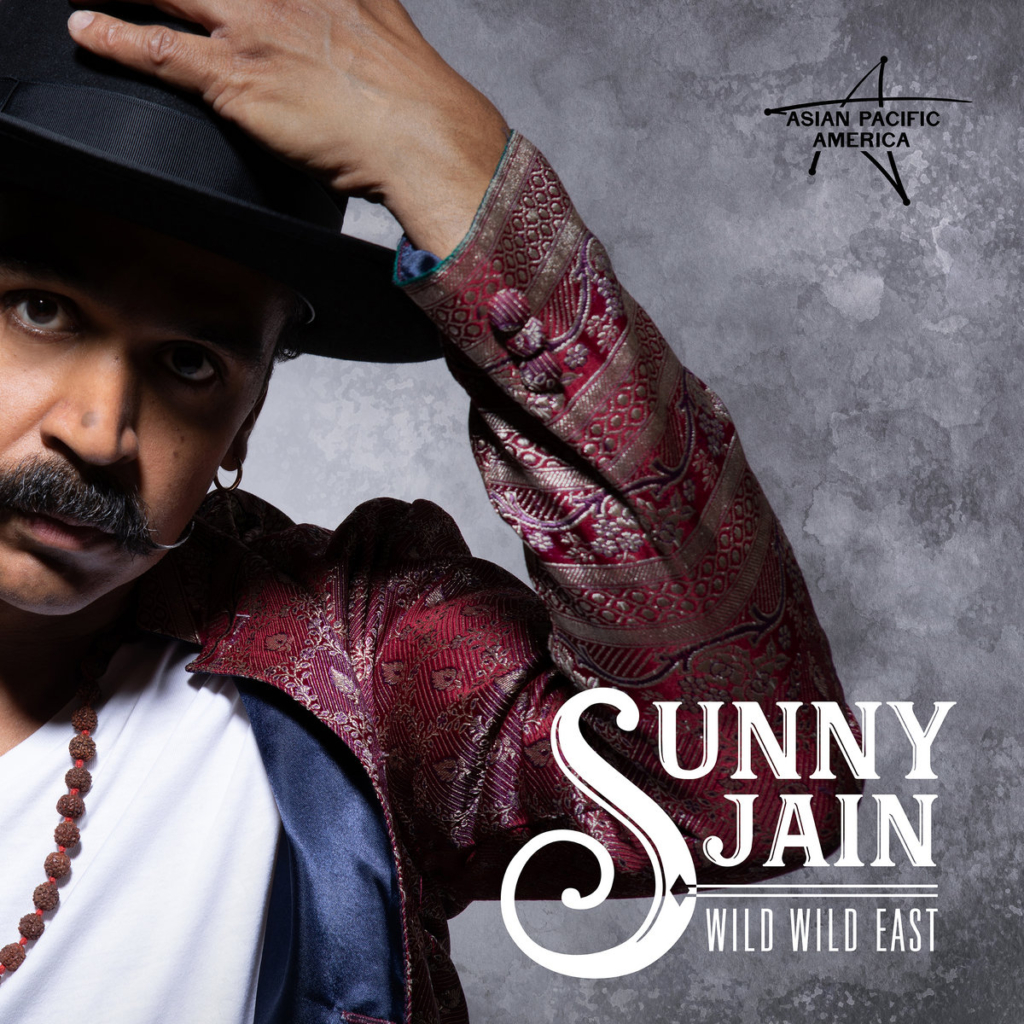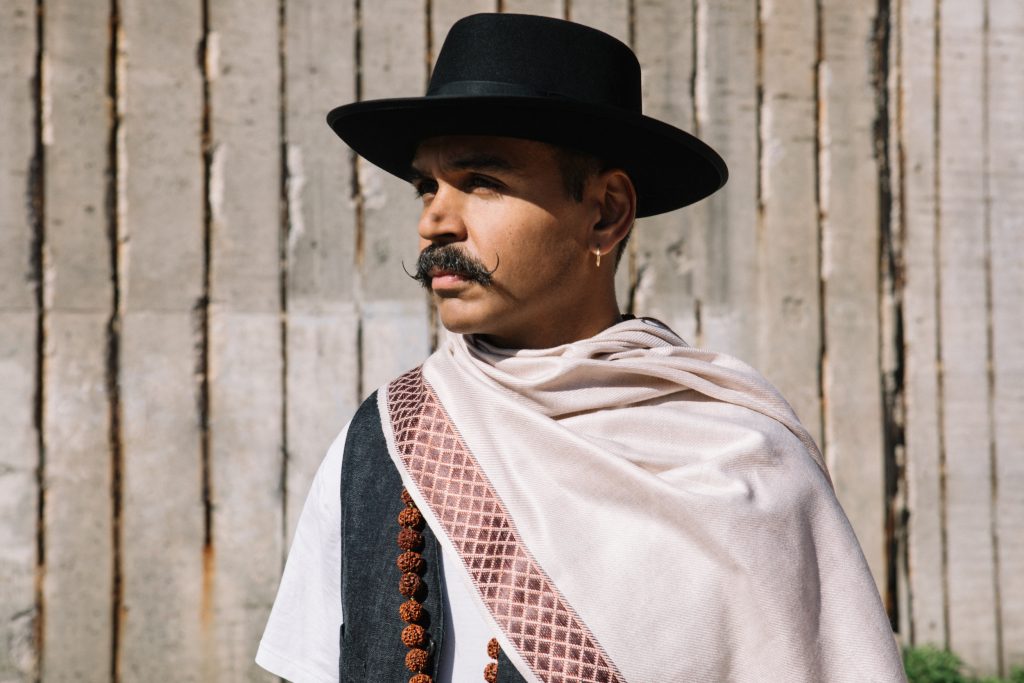Sunny Jain
Wild Wild East (Smithsonian Folkways)
Contact Sam McAllister about Sunny Jain
Behind its idealism, the American myth of westward expansion has always been an irony-caked parable about what happens when you try to escape the known for the pursuit of new beginnings. The traits we think we’ve spotted in the cowboy — bravery, boldness, a willingness to sacrifice the known for the sake of the better — have always been suspect. But the courage to leave behind a homeland and head west, to boldly step into a new place and declare it home, to survey the scene and try to find your place in it? That’s still around. “The idea of the American cowboy is this romanticized idea that’s just false,” Sunny Jain says plainly. “The immigrant is the current-day cowboy or cowgirl.”
This dynamic — of interrogating American myths to make them fit the reality of our world, of both questioning and rhapsodizing the notion of identity in a contingent world — is at the heart of Wild Wild East, the new album from the Brooklyn-based bandleader, composer, dhol player, and drummer. It’s also at the heart of his story — as the son of immigrants from India, as a kid from Rochester raised on the Cure and prog rock, as a fluid jazz drummer on his own and as a party-starter with Red Baraat, as an American of color. Accordingly, his view is broad enough to take in shuddering walls of post-rock guitar, howling tenor sax, the persistent thump of Indian brass band music, rhythms from Punjab and southern Pakistan, film soundtracks from around the world, and swaggering West Coast rap.
But like Jain himself, Wild Wild East can’t be reduced to a cosmopolitan series of signifiers taking their turn in the spotlight. The ease with which Jain braids his sound highlights the interconnectedness of global styles — and that sense of connection goes beyond the music itself, as Jain leads his group across genre borders he knows are arbitrary.
Wild Wild East first started to take shape following the 2016 election. “It felt like the Wild West,” Jain says of the times, though they played out in the theoretically civilized confines of Washington, D.C., and New York City — the East Coast. Around the same time, he found himself performing at the cultural festival park Global Village in Dubai, where countries from around the world are represented by architectural installations. “The only [place] there that was being represented by a human being was the Americas, and the Americas were represented by this cowboy — a white male cowboy with a hat, beard, gun in the holster.”
The cowboy’s boldness, bravery, and radical independence? It looks different when you’re not the one holding the gun. “The idea was to address the cowboy mentality that we people of color — whether you’re red, brown, or black — face,” Jain says. “The cowboy is this sheriff that you witness throughout American history, from the Wild West to the cops today, but if I were the native, if I were the African American, it’s like, ‘This cowboy is coming to shoot me down.’ This is not romantic to me at all.”
Jain has made a career of bringing musical forms into conversation with one another. His solo jazz albums percolate with Indian rhythms pounded out on a trap kit, and the thump of Red Baraat makes dancing partners out of bhangra and psychedelic rock. Wild Wild East casts its nets just as wide, but what it hauls in can’t be defined by any single point. This isn’t a jazz record, though it’s impossible to imagine without jazz; nor is it a South Asian party record, though Jain’s persistent dhol playing is impossible to resist. He brings us out to the wide-open spaces of the American West, a different kind of Indian engaging with the tired old cowboy. The cresting hum of Morricone can still be heard, but Jain also reminds us that R.D. Burman’s Bollywood compositions were born in the same kind of heat. Just when the music seems as though it’s about to take root, he rolls in another element, and we’re forced to reconsider our surroundings — surf guitar gallops along with the dhol in “Aye Mere Dil Aur Chal,” a serene bansuri flute solo is goosed out of its meditation by springing sarod in “Blackwell.” “Brooklyn Dhamal” begins with anthemic, Sufi riff before it’s overtaken by an apocalyptic wall of guitar, then resolves into a unified stomp. These songs suggest a migration of sound from east to west that can’t be contained, only — thrillingly — accepted.
In other words, Wild Wild East recognizes a world that’s always changing: Today’s cowboy or cowgirl learns how to adapt to their conditions. They see that they’re just as conditional as everything around them.
And that realization complicates things when you’re used to thinking of yourself in a certain way. “I think what shines through doing this album is the coming forward of the multiple identities of an immigrant — in my case being Indian American — not just this longing for South Asia and India, but the fact that I am American and there’s many complex interactions within all that,” Jain says.
So it seems fitting that Sunny Jain’s Wild Wild East is raucous, powerful, gorgeous, jubilant, dissonant. It’s defined by its restlessness, daring enough to encompass many different identities. It’s an album built of a truly American spirit, singing in a new voice: I am large, I contain multitudes.

